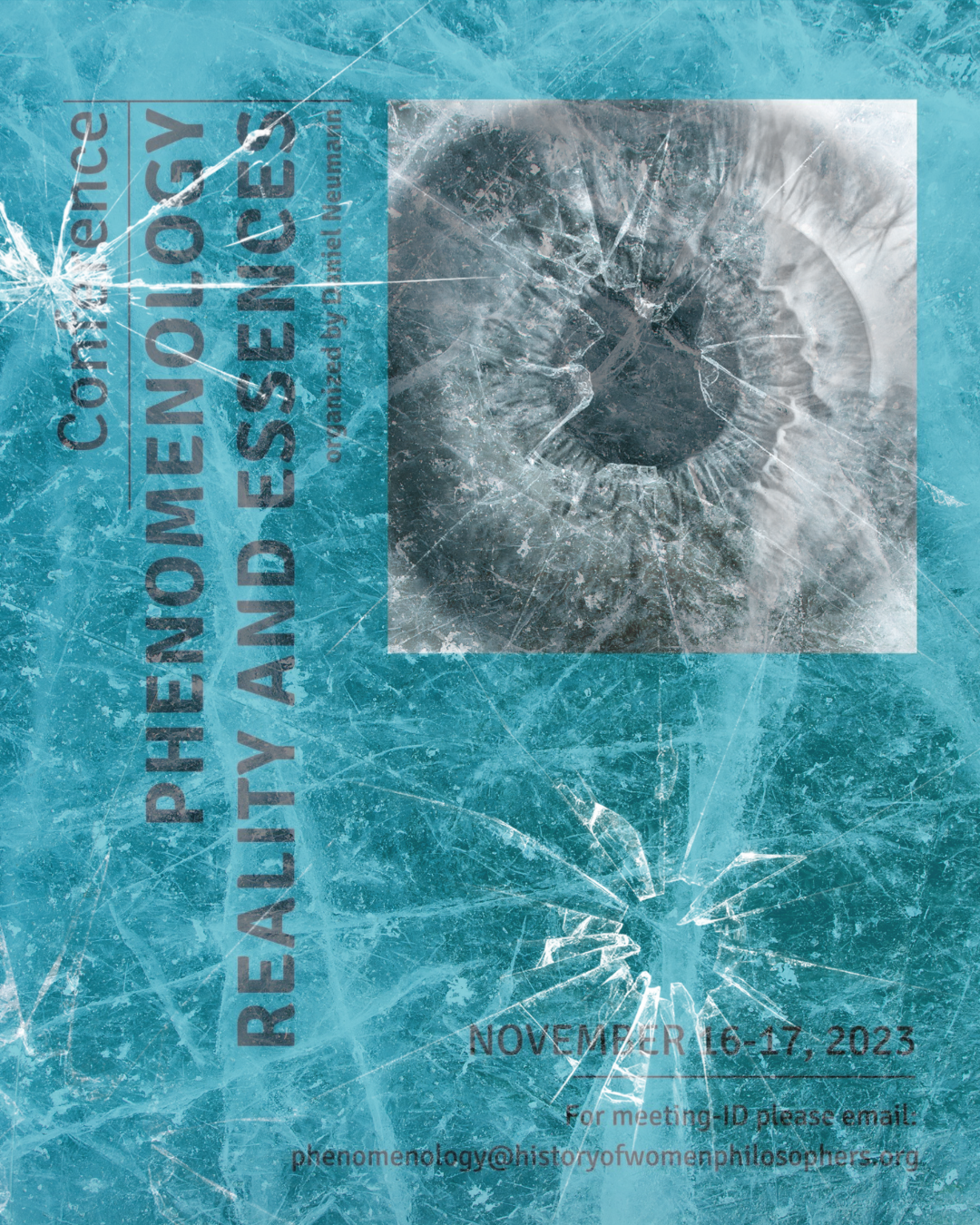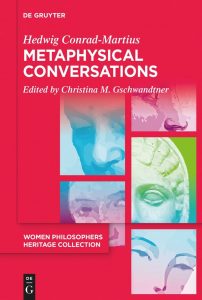
Women in Early Phenomenology
The purpose of this project is to shed new light on the lives and work of the women who took part in the early phenomenological movement, with particular focus on Edith Stein, Hedwig Conrad-Martius, and Gerda Walther.
The recent resurgence of interest in the history of the phenomenological movement has shown that these women were not marginal figures, but important contributors to the development of phenomenology. In cooperation with the Center HWPS, four volumes have appeared in the Springer Book series “Women in the History of Philosophy and Sciences” on Hedwig Conrad-Martius, Edith Stein and Gerda Walther. These volumes are concerned with the systematic understanding of the early phenomenologists and discuss the historical and theoretical encounter of their ideas, as well as showing their significance in current areas of research in social ontology and other fields. With DeGruyter, the book series “Women Philosophers Heritage Collection” has been launched in cooperation with the Center HWPS, which will feature bilingual translations of key texts of Gerda Walther and Hedwig Conrad-Martius.

Conference “Phenomenology, Reality and Essences”
International online-conference held from November 16-17.
In phenomenology, a standard way to make claims about reality is through the identification of invariant features of and in experience, traditionally called “essences”. Phenomenology as essence intuition, eidetic variation or eidetic reduction raises fundamental questions concerning, among other things, the ontological structure of reality, the status of essences, their normativity, the relationship to empirical sciences and the nature of the phenomenological a priori in general. This conference had two aims:
(1) To establish a fuller picture of the manifold ways in which essence intuition has been understood by phenomenologists historically. How was phenomenology as an eidetic science conceived in and especially outside of Husserl’s writings?
(2) To inquire if the idea of essence intuition, broadly construed, might still be considered a viable way of doing phenomenology, especially in light of recent interdisciplinary developments in various fields of phenomenology.
Publication of Hedwig Conrad-Martius’ Metaphysical Conversations
 In November, Hedwig Conrad-Martius’ Metaphysical Conversations and Phenomenological Essays, translated by Christina M. Gschwandtner was released. It is the first offering in the new DeGruyter series Women Philosophers Heritage Collection, edited by Ruth Edith Hagengruber together with Antonio Calcagno, Priyanka Jha and Rodney K. B. Parker. The book contains the 1921 text of the Metaphysical Conversations as well as the essays Phenomenology and Speculation and Transcendental and Ontological Phenomenology. Next to the English translations, the volume also contains the German texts.
In November, Hedwig Conrad-Martius’ Metaphysical Conversations and Phenomenological Essays, translated by Christina M. Gschwandtner was released. It is the first offering in the new DeGruyter series Women Philosophers Heritage Collection, edited by Ruth Edith Hagengruber together with Antonio Calcagno, Priyanka Jha and Rodney K. B. Parker. The book contains the 1921 text of the Metaphysical Conversations as well as the essays Phenomenology and Speculation and Transcendental and Ontological Phenomenology. Next to the English translations, the volume also contains the German texts.
The Metaphysical Conversations constitutes a new direction in the oeuvre of Hedwig Conrad-Martius. After having considered ontology from a phenomenal perspective in her 1916 Zur Ontologie und Erscheinungslehre der realen Außenwelt, in this book she establishes, in the form of Socratic dialogue, many of the metaphysical topics that she would expand on in later works. These include the ontic distinctions between plant, animal and human life which are further explored as the differences between bodily and spiritual being. In this way, the themes of the Metaphysical Conversations prefigure central ideas of Conrad-Martius Realontologie, published in 1923, where ontological investigations into real and material being take on a more formal guise.
Because of its playful dialogical character, this volume serves as a great introduction into the thinking of Hedwig Conrad-Martius, offering a glimpse into her unique realm of ideas.
Please also visit the DeGruyter page.
You cannot copy content of this page








